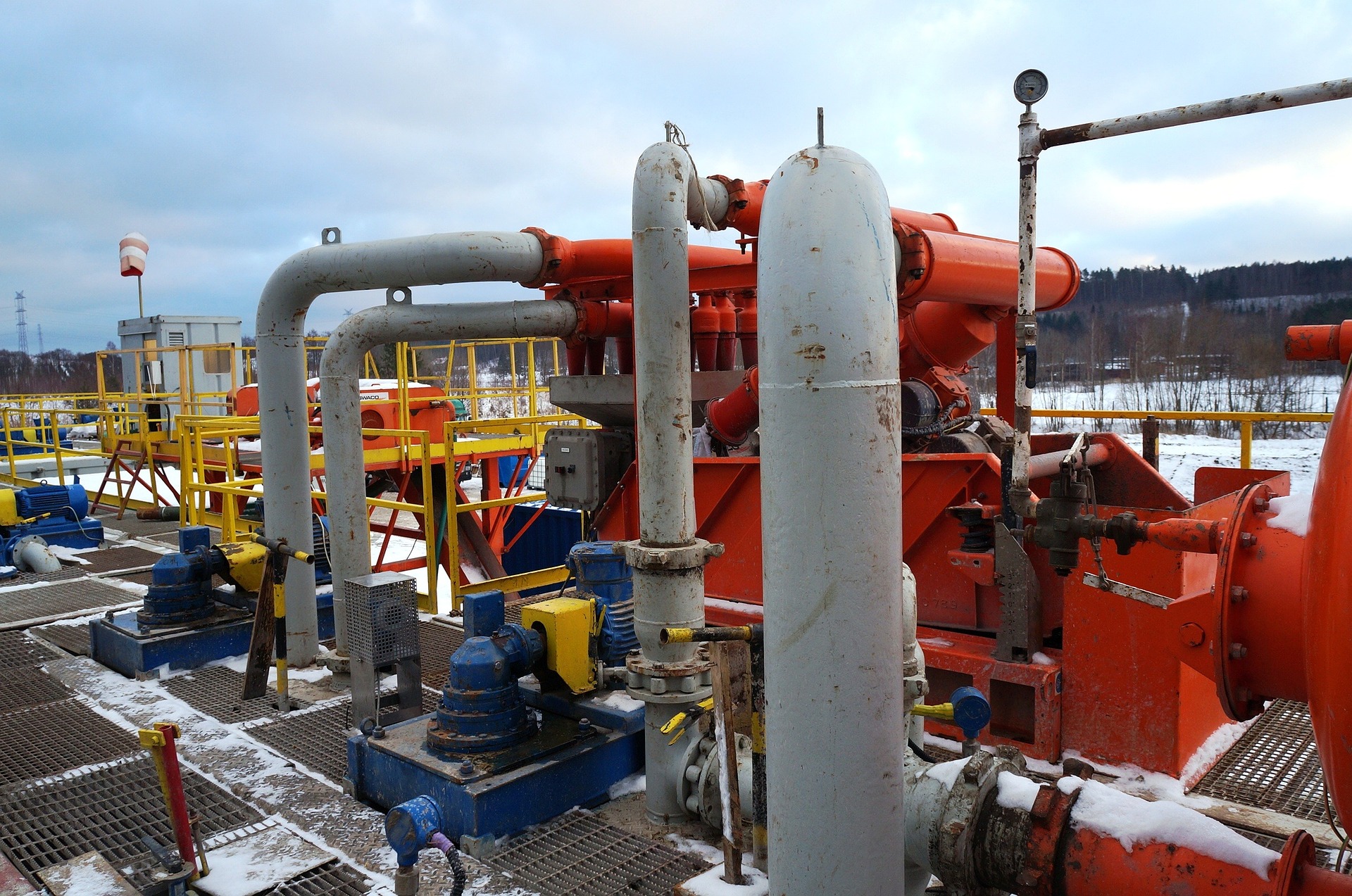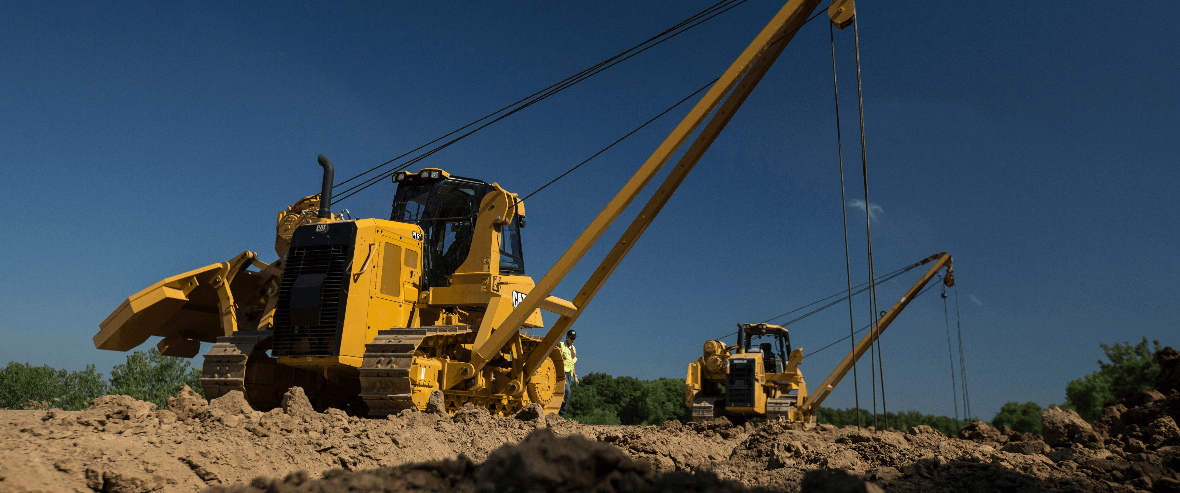A Comprehensive Guide to the Different Sorts Of Oil Field Equipment and Pipeline Equipment Available
The oil and gas industry counts heavily on customized devices for effective removal and transportation. Numerous kinds of machinery, from piercing rigs to tank, play essential functions in this intricate process. Each item of devices offers distinct features that contribute to total operational success. Recognizing these components is essential for any individual entailed in the sector. As the sector progresses, so too do the modern technologies that support it. What innovations are on the perspective?

Drilling Rigs: The Backbone of Oil Expedition
Drilling rigs offer as the essential equipment in the domain name of oil exploration, allowing companies to accessibility hydrocarbon gets buried deep below the Planet's surface area. These rigs can be found in various types, including land rigs, offshore rigs, and mobile systems, each made to operate in particular settings. Furnished with advanced modern technology, drilling rigs can penetrate geological formations with accuracy, making certain efficient resource removal. The architectural integrity and functional abilities of these rigs are critical, as they should stand up to extreme conditions and substantial pressures. Additionally, the selection of a drilling gear impacts the general project price and timeline, making it an essential consideration for oil companies looking for to optimize their exploration initiatives and make best use of efficiency in their operations.
Pumps: Essential for Fluid Motion
In the oil extraction procedure, the function of pumps is substantial, promoting the motion of liquids throughout various phases of production. Pumps are crucial for transferring unrefined oil, water, and various other liquids from below ground tanks to the surface area and after that via pipes to refineries. They can be found in numerous types, consisting of centrifugal, favorable displacement, and completely submersible pumps, each offering particular purposes based on the fluid characteristics and operational requirements. Centrifugal pumps are generally utilized for their efficiency in high-flow applications, while positive variation pumps stand out in handling viscous fluids. The selection of pump impacts overall performance, functional safety and security, and upkeep costs. Proper selection and maintenance of pumps are essential for optimizing production and minimizing downtime in oil area procedures.
Shutoffs: Managing Flow and Pressure

Shutoffs play an important function in handling the circulation and pressure of liquids within oil fields and pipes. Various kinds of shutoffs serve unique applications, each made to satisfy details functions fundamental for reliable operation - Superior Oilfield Rentals. Understanding the attributes and uses these shutoffs is vital for optimizing system performance and safety and security
Sorts of Valves
Vital elements in oil area procedures, shutoffs play an important duty in regulating the circulation and pressure of fluids within pipes and devices. Numerous kinds of shutoffs are utilized to meet the diverse requirements of oil and gas manufacturing. Usual types include gate shutoffs, which offer a straight-line circulation and very little pressure drop; world shutoffs, understood for their throttling abilities; and round valves, acknowledged for their fast on/off control. Furthermore, check valves protect against backflow, while butterfly shutoffs provide a lightweight solution for controling flow. Each valve type is created with specific products and setups to withstand the rough conditions typically located in oil areas, making sure integrity and efficiency in operations. Comprehending these kinds is essential for reliable system management.
Valve Applications and Functions
While numerous kinds of valves offer distinct objectives, their main applications revolve around controlling flow and pressure within oil and gas systems. Valves such as gate, globe, and ball valves regulate fluid activity, making sure peak efficiency and safety. Gate shutoffs are frequently utilized for on/off control, offering marginal circulation resistance. World shutoffs, on the other hand, offer exact flow guideline, making them ideal for strangling applications. Sphere shutoffs are favored for their fast procedure and tight sealing capabilities. Furthermore, stress relief shutoffs are crucial for preventing system overpressure, guarding tools honesty. Overall, the appropriate choice and application of valves enhance operational performance, Discover More making sure the reliable transport of oil and gas with pipelines and processing centers.
Compressors: Enhancing Gas Transportation
Compressors play a vital function in the reliable transport of all-natural gas, guaranteeing that it relocates smoothly through pipes over long distances. These tools enhance the pressure of gas, enabling it to get rid of friction and altitude adjustments within the pipeline system. Additionally, compressors facilitate the balancing of supply and demand, suiting variations in usage and production rates. Numerous types of compressors are utilized in the industry, consisting of centrifugal, reciprocating, and rotating screw compressors, each offering distinctive benefits based on the operational requirements. Normal upkeep of these compressors is vital to maximize effectiveness and decrease downtime, ultimately adding to a dependable gas transportation network. Their important feature underscores the value of compressors in the overall oil and gas infrastructure.
Storage Tanks: Safe and Effective Fluid Monitoring
Effective transport of all-natural gas relies upon various sustaining systems, one of which is the correct monitoring of tank. These storage tanks play an essential duty in securely including liquids, ensuring that functional efficiency is kept while reducing ecological threats. Built from sturdy materials, they are developed to endure high stress and harsh aspects. Appropriately sized and tactically located, tank assist in the smooth circulation of natural gas and other liquids, avoiding bottlenecks in supply chains. Normal maintenance and tracking are necessary to identify leakages or architectural problems, promoting safety and compliance with governing requirements. Eventually, the reliable management of storage tanks is critical for the overall integrity and reliability of the oil and gas sector's fluid handling systems.
Pipeline Equipments: Infrastructure for Transport
Pipeline systems work as the foundation of the oil and gas sector, helping with the reliable transport of More hints hydrocarbons over huge distances. These systems contain numerous parts, including pipes, shutoffs, pumps, and compressors, all meticulously designed to ensure smooth circulation. The materials utilized in pipeline building and construction, usually steel or high-density polyethylene, are picked for resilience and resistance to corrosion. Pipeline networks can cover across land and water, linking manufacturing websites to refineries and warehouse. In addition, advanced technology allows real-time monitoring of flow rates and stress levels, boosting functional performance. The tactical placement of these pipes decreases ecological effect while optimizing source availability, thus playing an important duty in meeting energy needs internationally.
Safety And Security Equipment: Making Sure Employee and Environmental Protection
The procedure of pipeline systems, while important for energy transportation, additionally presents considerable security challenges for workers and the environment. Safety and security equipment plays a substantial function in reducing these threats. Individual safety tools (PPE) such as headgears, handwear covers, and non-slip shoes safeguards employees from physical dangers. Furthermore, gas discovery systems keep track of for leakages, guaranteeing that damaging substances do not pose a danger to workers or the bordering ecosystem. Emergency closure systems are imperative for promptly halting operations during a crisis, protecting against prospective disasters. Spill containment materials, including absorbents and barriers, are essential for lessening environmental influence. On the whole, investing in all-encompassing safety equipment is essential for keeping operational honesty and protecting both employees and the environment in the oil and gas sector.

Often Asked Concerns
How Do I Select the Right Oil Field Equipment for My Task?
Choosing the appropriate oil field tools entails assessing project specs, budget plan constraints, and operational requirements. Think about variables such as tools reliability, compatibility with existing systems, and the distributor's online reputation to assure peak efficiency and safety and security.
What Are the Maintenance Demands for Oil Field Equipment?
Maintenance demands for click over here oil area devices consist of routine evaluations, lubrication, and prompt repairs. Operators needs to also stick to maker guidelines, screen efficiency metrics, and guarantee compliance with safety guidelines to boost long life and effectiveness.

Exactly How Can I Guarantee Conformity With Environmental Laws?
To guarantee compliance with environmental guidelines, firms have to perform regular audits, carry out ideal techniques, purchase training, maintain appropriate documents, and remain updated on legislation (Superior Rentals midland). Partnership with ecological agencies can likewise improve adherence to laws
What Is the Typical Life Expectancy of Pipeline Equipment?
The typical lifespan of pipeline equipment normally varies from 20 to 50 years, relying on factors such as worldly quality, ecological conditions, and maintenance methods. Normal evaluations can significantly affect durability and operational performance.
Exactly how Do I Securely Deliver Oil Field Equipment to Remote Locations?
Moving oil area devices to remote places calls for cautious preparation, including route assessment, safeguarding licenses, using proper automobiles, and making certain security protocols are complied with. Proper training and interaction amongst teams are crucial for effective transportation.